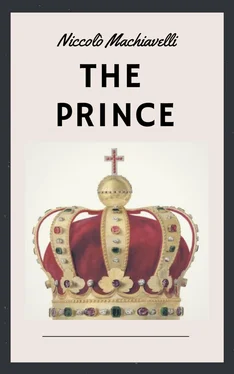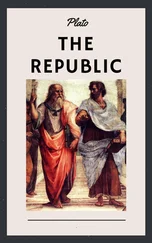Title Page THE PRINCE by Niccolò Machiavelli Translated by W. K. Marriott
INTRODUCTION INTRODUCTION Niccolò Machiavelli was born at Florence on 3rd May 1469. He was the second son of Bernardo di Niccolò Machiavelli, a lawyer of some repute, and of Bartolommea di Stefano Nelli, his wife. Both parents were members of the old Florentine nobility. His life falls naturally into three periods, each of which singularly enough constitutes a distinct and important era in the history of Florence. His youth was concurrent with the greatness of Florence as an Italian power under the guidance of Lorenzo de' Medici, Il Magnifico. The downfall of the Medici in Florence occurred in 1494, in which year Machiavelli entered the public service. During his official career Florence was free under the government of a Republic, which lasted until 1512, when the Medici returned to power, and Machiavelli lost his office. The Medici again ruled Florence from 1512 until 1527, when they were once more driven out. This was the period of Machiavelli's literary activity and increasing influence; but he died, within a few weeks of the expulsion of the Medici, on 22nd June 1527, in his fifty-eighth year, without having regained office.
YOUTH — Aet. 1-25—1469-94 YOUTH — Aet. 1-25—1469-94 Although there is little recorded of the youth of Machiavelli, the Florence of those days is so well known that the early environment of this representative citizen may be easily imagined. Florence has been described as a city with two opposite currents of life, one directed by the fervent and austere Savonarola, the other by the splendour-loving Lorenzo. Savonarola's influence upon the young Machiavelli must have been slight, for although at one time he wielded immense power over the fortunes of Florence, he only furnished Machiavelli with a subject of a gibe in "The Prince," where he is cited as an example of an unarmed prophet who came to a bad end. Whereas the magnificence of the Medicean rule during the life of Lorenzo appeared to have impressed Machiavelli strongly, for he frequently recurs to it in his writings, and it is to Lorenzo's grandson that he dedicates "The Prince." Machiavelli, in his "History of Florence," gives us a picture of the young men among whom his youth was passed. He writes: "They were freer than their forefathers in dress and living, and spent more in other kinds of excesses, consuming their time and money in idleness, gaming, and women; their chief aim was to appear well dressed and to speak with wit and acuteness, whilst he who could wound others the most cleverly was thought the wisest." In a letter to his son Guido, Machiavelli shows why youth should avail itself of its opportunities for study, and leads us to infer that his own youth had been so occupied. He writes: "I have received your letter, which has given me the greatest pleasure, especially because you tell me you are quite restored in health, than which I could have no better news; for if God grant life to you, and to me, I hope to make a good man of you if you are willing to do your share." Then, writing of a new patron, he continues: "This will turn out well for you, but it is necessary for you to study; since, then, you have no longer the excuse of illness, take pains to study letters and music, for you see what honour is done to me for the little skill I have. Therefore, my son, if you wish to please me, and to bring success and honour to yourself, do right and study, because others will help you if you help yourself."
OFFICE — Aet. 25-43—1494-1512
LITERATURE AND DEATH — Aet. 43-58—1512-27
THE MAN AND HIS WORKS
DEDICATION
THE PRINCE
CHAPTER I — HOW MANY KINDS OF PRINCIPALITIES THERE ARE, AND BY WHAT MEANS THEY ARE ACQUIRED
CHAPTER II — CONCERNING HEREDITARY PRINCIPALITIES
CHAPTER III — CONCERNING MIXED PRINCIPALITIES
CHAPTER IV — WHY THE KINGDOM OF DARIUS, CONQUERED BY ALEXANDER, DID NOT REBEL AGAINST THE SUCCESSORS OF ALEXANDER AT HIS DEATH
CHAPTER V — CONCERNING THE WAY TO GOVERN CITIES OR PRINCIPALITIES WHICH LIVED UNDER THEIR OWN LAWS BEFORE THEY WERE ANNEXED
CHAPTER VI — CONCERNING NEW PRINCIPALITIES WHICH ARE ACQUIRED BY ONE'S OWN ARMS AND ABILITY
CHAPTER VII — CONCERNING NEW PRINCIPALITIES WHICH ARE ACQUIRED EITHER BY THE ARMS OF OTHERS OR BY GOOD FORTUNE
CHAPTER VIII — CONCERNING THOSE WHO HAVE OBTAINED A PRINCIPALITY BY WICKEDNESS
CHAPTER IX — CONCERNING A CIVIL PRINCIPALITY
CHAPTER X — CONCERNING THE WAY IN WHICH THE STRENGTH OF ALL PRINCIPALITIES OUGHT TO BE MEASURED
CHAPTER XI — CONCERNING ECCLESIASTICAL PRINCIPALITIES
CHAPTER XII — HOW MANY KINDS OF SOLDIERY THERE ARE, AND CONCERNING MERCENARIES
CHAPTER XIII — CONCERNING AUXILIARIES, MIXED SOLDIERY, AND ONE'S OWN
CHAPTER XIV — THAT WHICH CONCERNS A PRINCE ON THE SUBJECT OF THE ART OF WAR
CHAPTER XV — CONCERNING THINGS FOR WHICH MEN, AND ESPECIALLY PRINCES, ARE PRAISED OR BLAMED
CHAPTER XVI — CONCERNING LIBERALITY AND MEANNESS
CHAPTER XVII — CONCERNING CRUELTY AND CLEMENCY, AND WHETHER IT IS BETTER TO BE LOVED THAN FEARED
CHAPTER XVIII(*) — CONCERNING THE WAY IN WHICH PRINCES SHOULD KEEP FAITH
CHAPTER XIX — THAT ONE SHOULD AVOID BEING DESPISED AND HATED
CHAPTER XX — ARE FORTRESSES, AND MANY OTHER THINGS TO WHICH PRINCES OFTEN RESORT, ADVANTAGEOUS OR HURTFUL?
CHAPTER XXI — HOW A PRINCE SHOULD CONDUCT HIMSELF SO AS TO GAIN RENOWN
CHAPTER XXII — CONCERNING THE SECRETARIES OF PRINCES
CHAPTER XXIII — HOW FLATTERERS SHOULD BE AVOIDED
CHAPTER XXIV — WHY THE PRINCES OF ITALY HAVE LOST THEIR STATES
CHAPTER XXV — WHAT FORTUNE CAN EFFECT IN HUMAN AFFAIRS AND HOW TO WITHSTAND HER
CHAPTER XXVI — AN EXHORTATION TO LIBERATE ITALY FROM THE BARBARIANS
DESCRIPTION OF THE METHODS ADOPTED BY THE DUKE VALENTINO WHEN MURDERING VITELLOZZO VITELLI, OLIVEROTTO DA FERMO, THE SIGNOR PAGOLO, AND THE DUKE DI GRAVINA ORSINI
NICCOLÒ MACHIAVELLI
THE LIFE OF CASTRUCCIO CASTRACANI OF LUCCA
CASTRUCCIO CASTRACANI 1284-1328
Imprint
THE PRINCE
by Niccolò Machiavelli
Translated by W. K. Marriott
Niccolò Machiavelli was born at Florence on 3rd May 1469. He was the second son of Bernardo di Niccolò Machiavelli, a lawyer of some repute, and of Bartolommea di Stefano Nelli, his wife. Both parents were members of the old Florentine nobility.
His life falls naturally into three periods, each of which singularly enough constitutes a distinct and important era in the history of Florence. His youth was concurrent with the greatness of Florence as an Italian power under the guidance of Lorenzo de' Medici, Il Magnifico. The downfall of the Medici in Florence occurred in 1494, in which year Machiavelli entered the public service. During his official career Florence was free under the government of a Republic, which lasted until 1512, when the Medici returned to power, and Machiavelli lost his office. The Medici again ruled Florence from 1512 until 1527, when they were once more driven out. This was the period of Machiavelli's literary activity and increasing influence; but he died, within a few weeks of the expulsion of the Medici, on 22nd June 1527, in his fifty-eighth year, without having regained office.
YOUTH — Aet. 1-25—1469-94
Although there is little recorded of the youth of Machiavelli, the Florence of those days is so well known that the early environment of this representative citizen may be easily imagined. Florence has been described as a city with two opposite currents of life, one directed by the fervent and austere Savonarola, the other by the splendour-loving Lorenzo. Savonarola's influence upon the young Machiavelli must have been slight, for although at one time he wielded immense power over the fortunes of Florence, he only furnished Machiavelli with a subject of a gibe in "The Prince," where he is cited as an example of an unarmed prophet who came to a bad end. Whereas the magnificence of the Medicean rule during the life of Lorenzo appeared to have impressed Machiavelli strongly, for he frequently recurs to it in his writings, and it is to Lorenzo's grandson that he dedicates "The Prince."
Читать дальше












